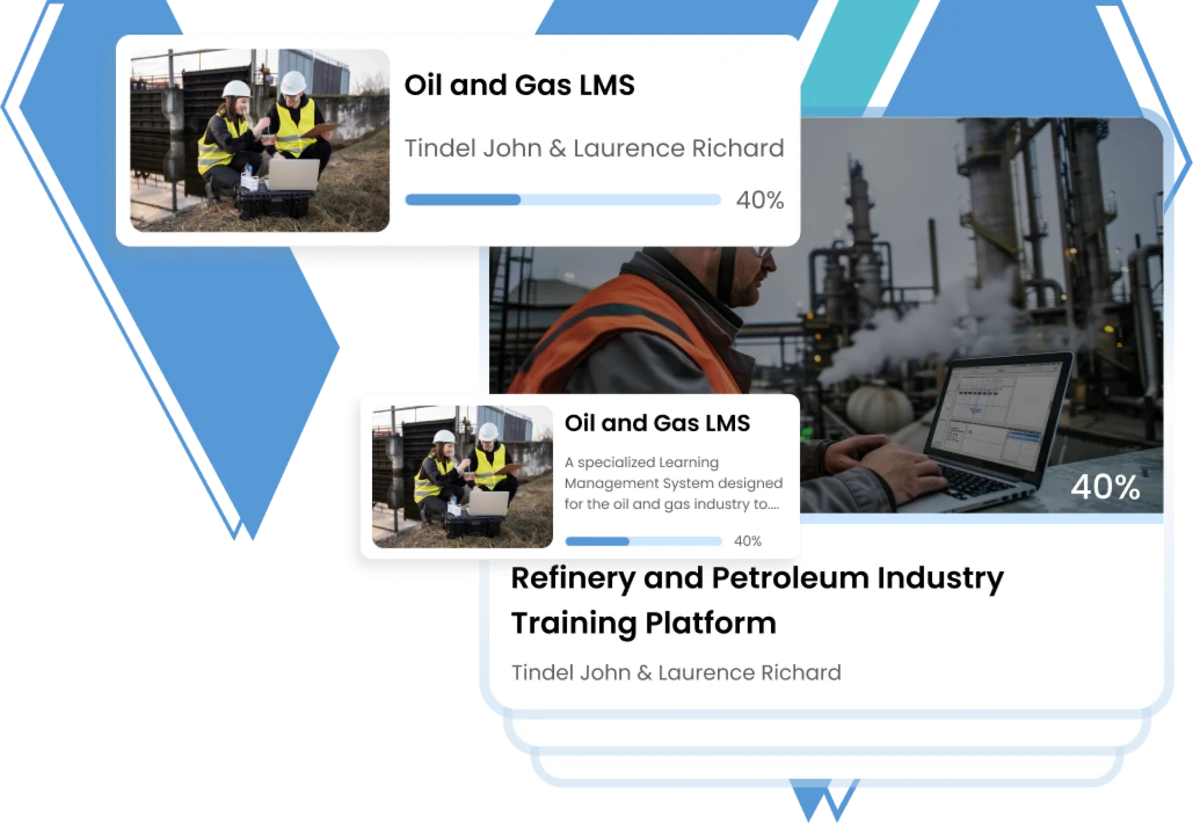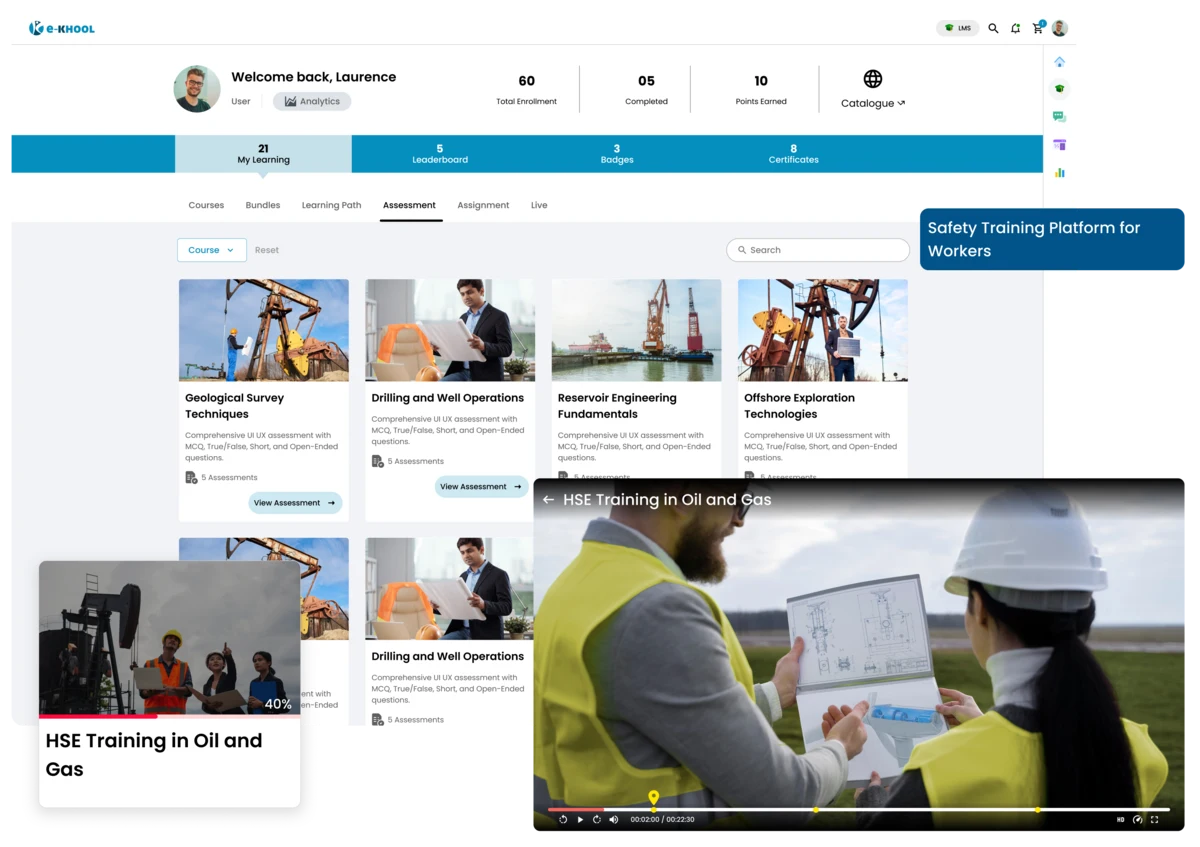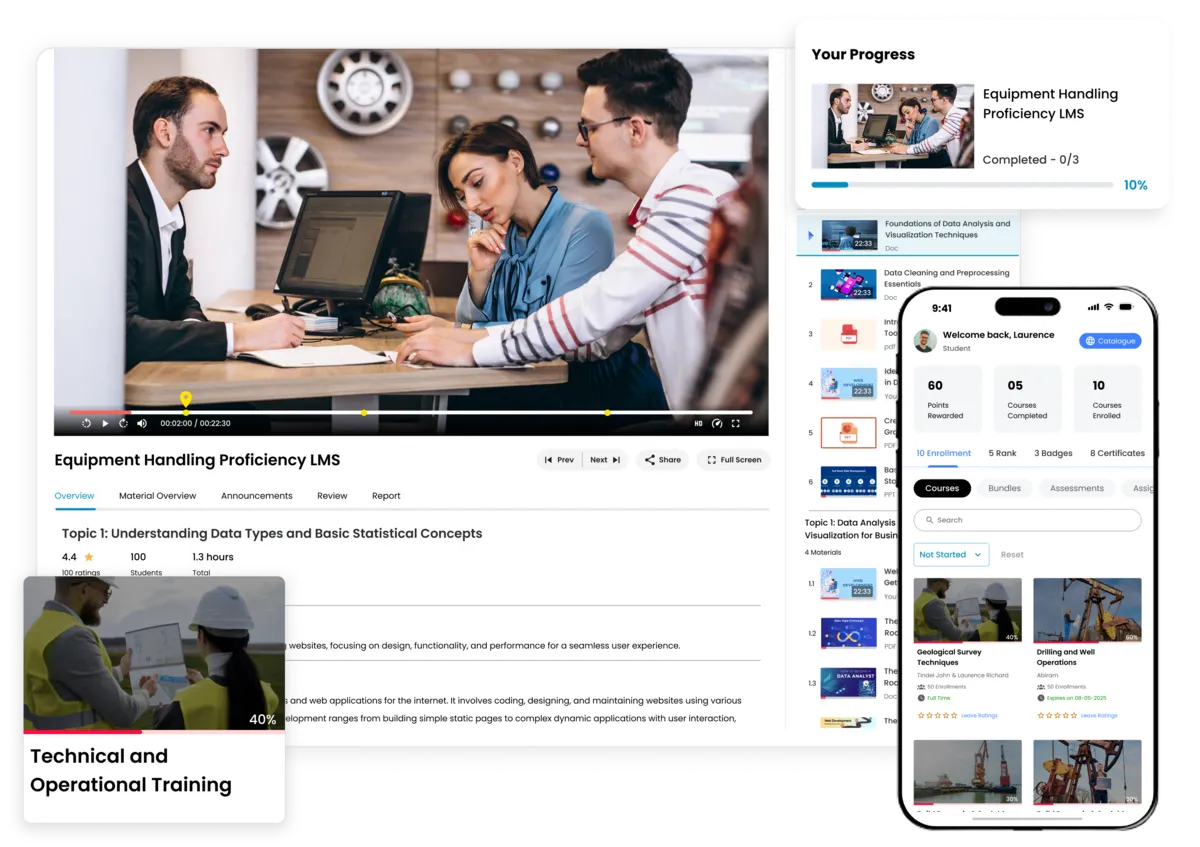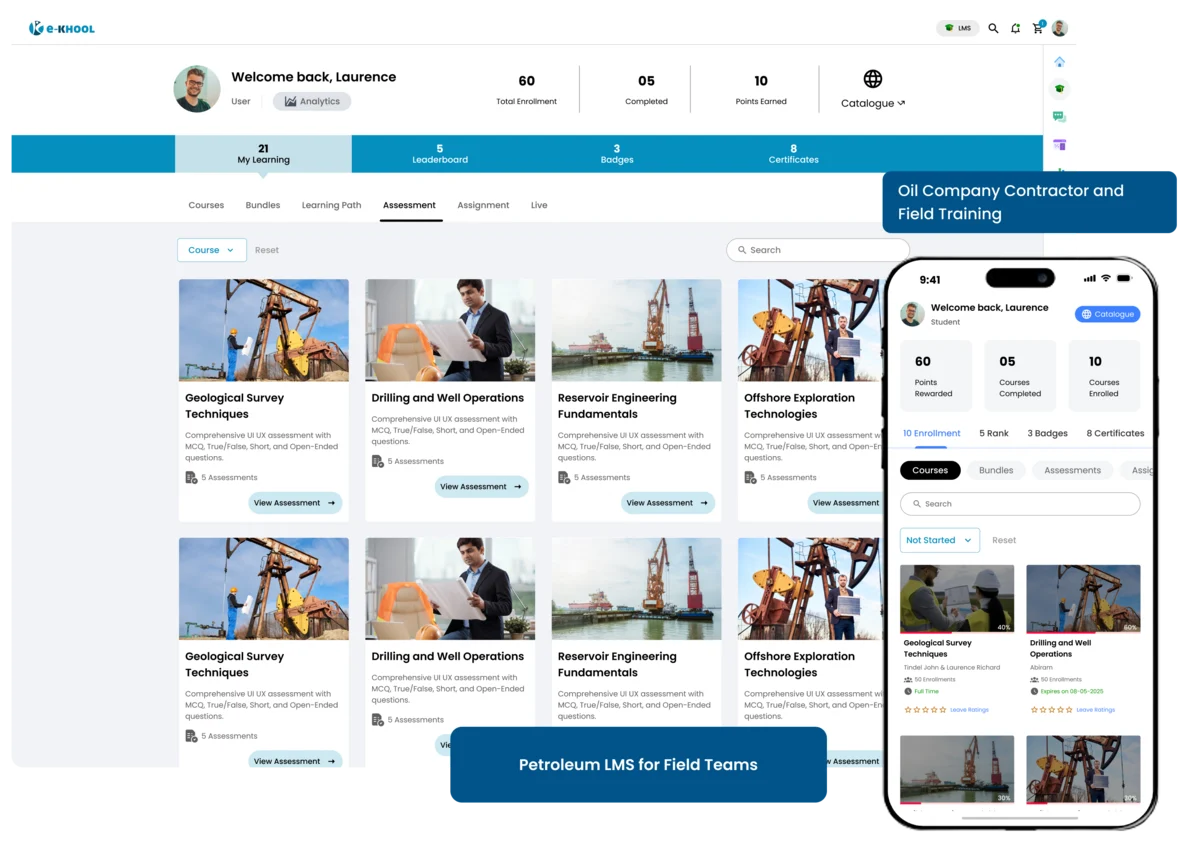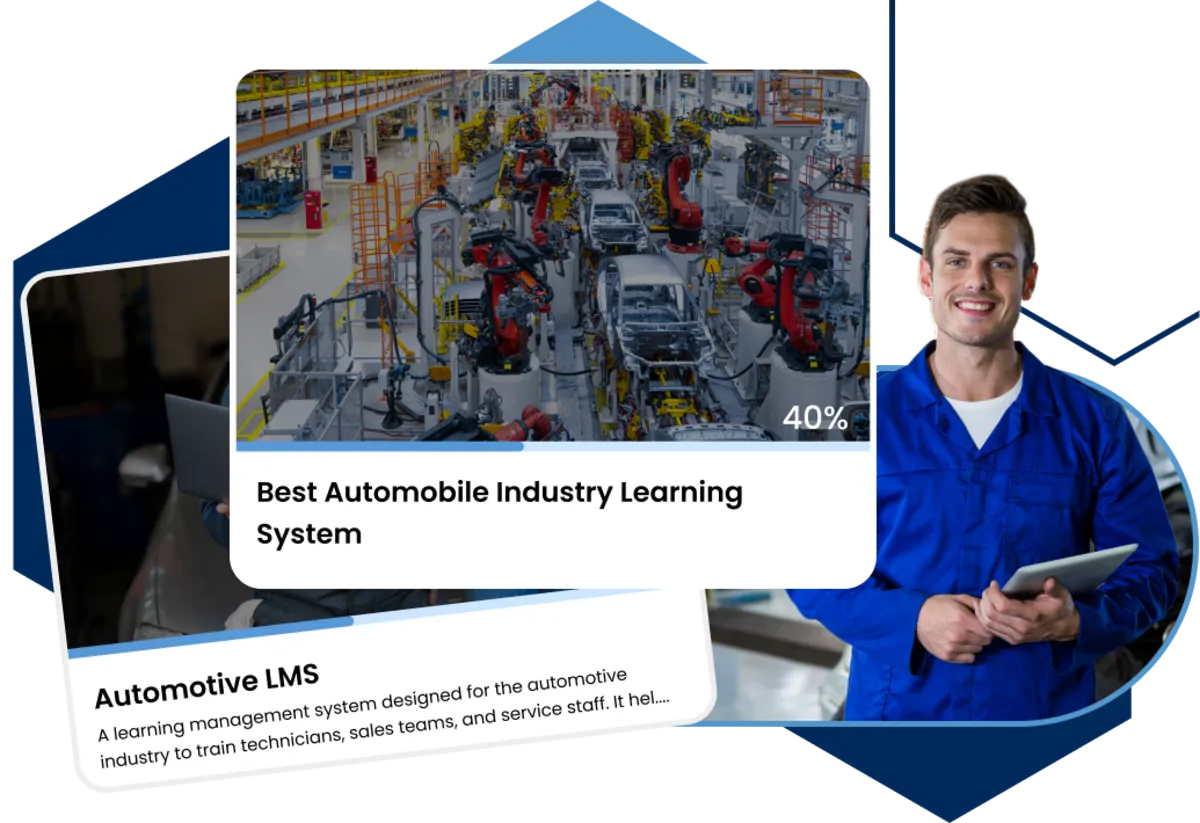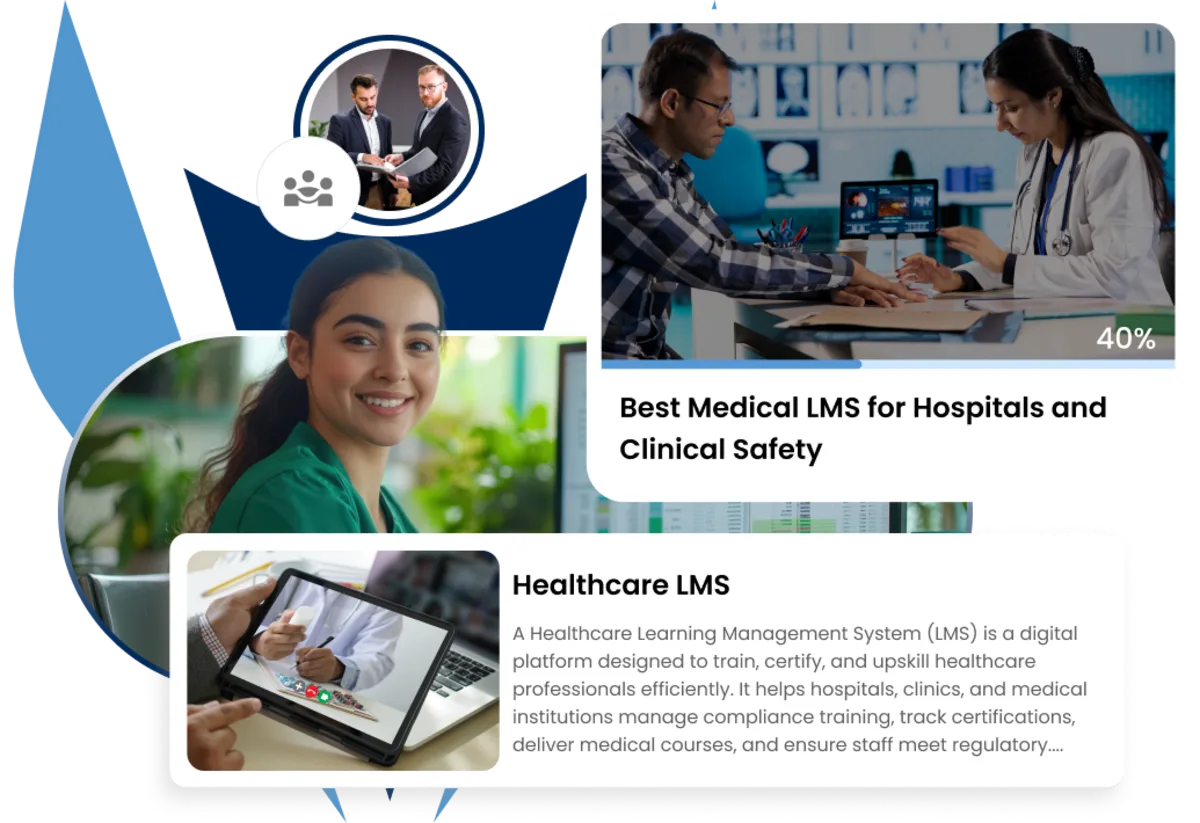Empowering the Oil & Gas Workforce
Organizations can deliver engaging and consistent learning across all operations with e-KHOOL LMS, keeping employees up-to-date and confident in their roles.

Operators & Refinery Teams
Stay updated with compliance and technical training to work safely and efficiently in daily operations.
Health, Safety & Environment (HSE) Departments
Deliver consistent safety and emergency training to protect employees and maintain regulatory standards.
Contractors & Field Crews
Access essential training anytime, anywhere, even on mobile or Tab, to perform tasks safely and effectively.
HR & Learning Leaders
Track skills, certifications, and workforce development to ensure teams are trained and ready for evolving industry needs.
Role of LMS in oil and gas industry training
Combining advanced technology and user-focused design, e-KHOOL LMS meets the unique learning needs of the oil and gas industry.
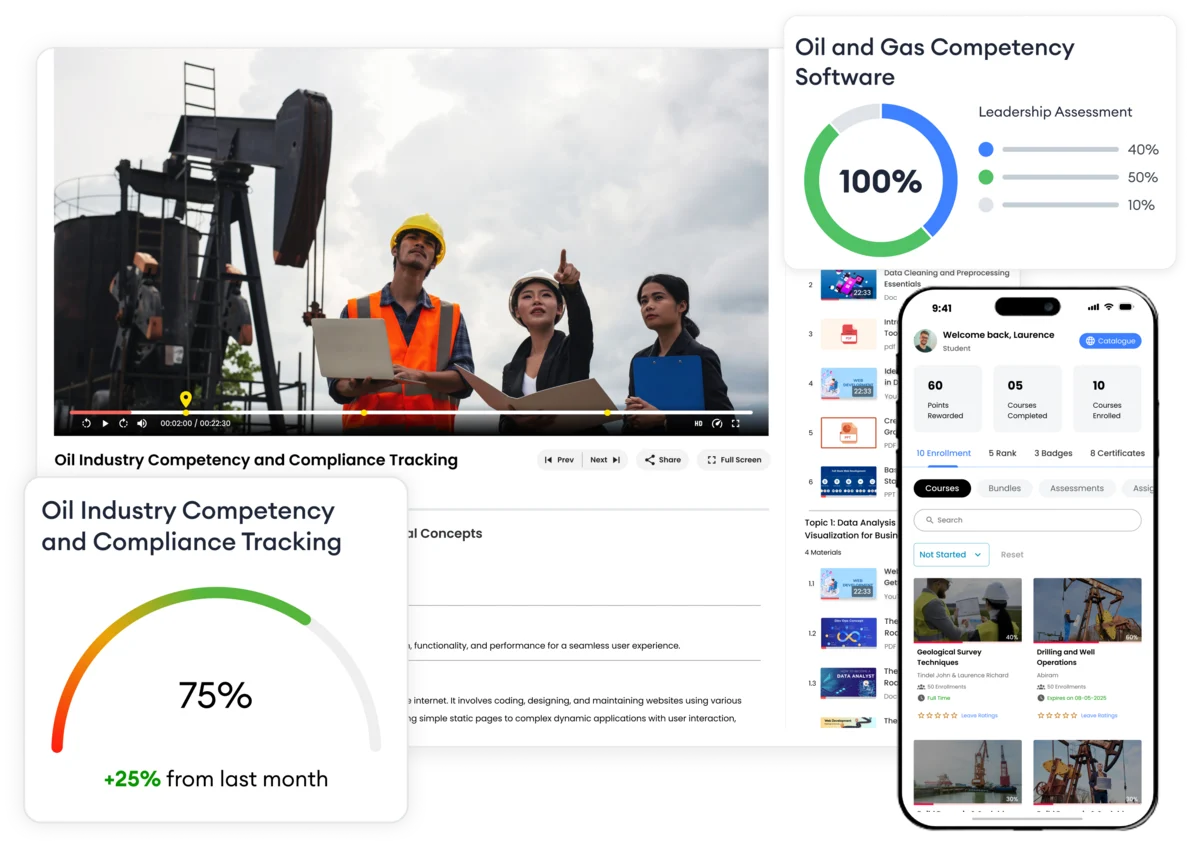
Advantages of e-KHOOL LMS in oil & gas
Our LMS combines advanced technology and user focused design to meet the unique needs of the oil and gas industry.
Mobile-First & Offline Learning
Access training anytime, anywhere, even in remote field locations with no internet connectivity.
Blended Learning Support
Deliver a mix of instructor-led, virtual, and self-paced training for maximum flexibility.
Data-Driven Insights
Track employee progress, identify skill gaps, and measure training ROI with intuitive dashboards and reports.
Enterprise-Grade Security & Integrations
Maintain high level data security while seamlessly integrating with existing HR and ERP systems.
Measurable Results with e-KHOOL
e-KHOOL LMS helps the oil and gas industry turn training into tangible outcomes. By learning and tracking performance, companies achieve safer operations.
30%
e-KHOOL reduces workplace accidents through structured HSE training
$ 500k
Reduced training expenses with digital learning and less downtime.
25%
Improved employee engagement and career growth with structured learning.
